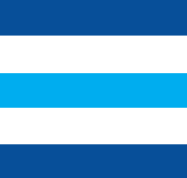Since the Affordable Care Act was enacted, voluntary benefits have steadily gained popularity. In the post ACA world, many employer-sponsored benefits packages are leaner and deductibles and out-of-pocket expenses are higher.
Voluntary benefits help fill the gaps. Employers value voluntary benefits because they can bolster their benefits offering without increasing costs. Employees like voluntary benefits because they often have the advantage of group rates, simplified underwriting and convenient payment via payroll deduction.
It seems like a win-win for all involved. But, COBRA continuation obligations should be considered.
Below are three things employers should know about COBRA administration:
- First, COBRA has been expanded since it came into effect in 1986. Qualifying plans can now include flexible spending accounts, wellness programs and cancer care – anything that counts as health care.
- Second, not all companies have COBRA obligations. COBRA regulations apply to companies with at least 20 employees on most typical business days. Smaller companies don’t have to worry about COBRA administration.
- Third, COBRA applies to group health plans. Under ERISA, a group health plan includes any plan, program or fund established or maintained by the employer in order to provide health care. This does not exclude voluntary plans even when the plans are portable or the employer does not contribute to the premium.
With this in mind, it’s clear that COBRA can apply to voluntary benefits. However, COBRA doesn’t apply to all voluntary benefits. To determine whether or not a specific voluntary benefit must be continued under COBRA, you need to look at the following issues.
- Does the plan qualify as health care? If so, COBRA applies. In terms of COBRA, health care is defined as “the diagnosis, cure, mitigation, treatment or prevention of disease or any undertaking for the purpose of affecting any structure or function of the body.” This includes things like dental plans.
- Can employees get the same benefits at the same cost on their own? If so, and if the employer participation is negligible, COBRA continuation may not be necessary.
- Does the plan provide life insurance, disability insurance, long-term care insurance or legal assistance? These are not considered health care plans, so voluntary plans that provide these benefits and these benefits only do not qualify for COBRA.
- Is it a Health Savings Account? Medical plans attached to Health Savings Accounts fall under the domain of COBRA, but bank accounts in the name of the individual do not.
As you can see, there’s no simple answer to the question of whether COBRA applies to voluntary benefits. Often it does, but sometimes it doesn’t. Never assume that COBRA does not apply without a close analysis of the plan. When in doubt, consult the carrier and legal counsel, and provide clear documentation supporting any decision not offer COBRA in case a dispute arises.
COBRA administration is a lot easier with the right COBRA software in place. To see COBRAGuard in action, take an online tour now.



